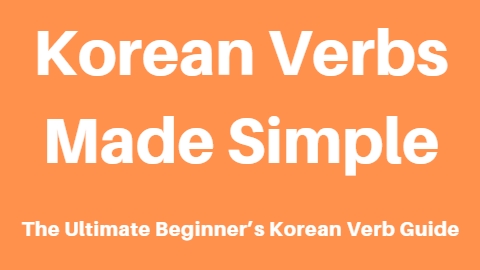Korean Lessons ᚛ Level 3 - Korean for Beginners #2 (Lessons 61 to 90) ᚛ Lesson 74 - "If" in Korean, the condition [-(으)면]
"If" in Korean, the condition [-(으)면]
In this chapter, we're going to learn how to construct phrases structured around conditions, which we would translate in English as "if …", or even "when …", to some extent.
The condition "if" in Korean
In Korean, the condition "if" is constructed in the following manner:
[Condition: ... Stem](으)면 [Effect]
- If the stem ends in a vowel: [Stem]면
- If the stem ends in a consonant: [Stem]으면
The suffix -(으)면 attaches itself to the stem of the verb of the conditional proposition. Then the effect is explained after the condition.
비가 오면 운전하지 마.
→ Don't drive if it's raining.
신발이 작으면 동생에게 줘.
→ If the shoes are small, give them to your younger sibling.
그 동물원에 가면 하얀 호랑이를 볼 수 있습니다.
→ If you go to the zoo, you can see a white tiger.
추가 질문이 있으면 이메일 보내세요.
→ If you have other questions, send me an email.
그 옷을 입으면 정말 따뜻해.
→ This piece of clothing is really warm. (Lit: If you wear this article of clothing you are really warm)
네가 피자를 사면 내가 케이크를 살게.
→ If you buy a pizza, I'll buy a cake.
다 먹으면 배 아플 거예요.
→ If you eat everything, you will have a stomach ache.
내일 따뜻하면 밖에 나갈 거야.
→ Tomorrow, if it's warm, I will go outside.
성인이 아니면 술을 살 수 없습니다.
→ If you are not an adult, you cannot buy alcohol.
Exceptions with -(으)면
The stem ends in ㄹ
For verbs with a stem ending in ㄹ, the conditional form is obtained in the following manner:
Add 면 to the stem, unlike the normal rule for the construction of the conditional form.
The verb 살다 (= to live) has 살, which ends in ㄹ, for its stem. We add 면 even though the stem ends in a consonant. So, 살다 has the conditional form 살면.
The verb 울다 (= to cry) has 울, which ends in ㄹ, for its stem. We add 면 even though the stem ends in a consonant. So, 울다 has the conditional form 울면.
산타할아버지는 네가 울면 선물을 안 주실 거야.
→ If you cry, Santa Claus won't give you presents.
착하게 살면 언젠가는 꼭 복을 받을 거야.
→ If you live by being kind, one day you will certainly receive good fortune.
The stem ends in ㅂ
For irregular verbs with a stem ending in ㅂ, the conditional form is obtained in the following manner:
Drop the final ㅂ from the stem, then add 우면.
The irregular verb 귀엽다 (= to be cute) has 귀엽, which ends in ㅂ, for its stem. First we drop the final ㅂ from the stem, obtaining 귀여. Then we add 우면. So, 귀엽다 has the conditional form 귀여우면.
The irregular verb 덥다 (= to make hot) has the stem 덥, which ends in ㅂ. First we drop the final ㅂ from the stem, obtaining 더. Then we add 우면. So, 덥다 has the conditional form 더우면.
사람들을 도우면 기분이 좋아요.
→ When I help people, I feel good.
고기를 센불로 구우면 타요.
→ If you grill meat with a strong fire, it burns.
The stem ends in ㄷ
Learn more
The stem ends in ㅅ
Learn more
The stem ends in ㅎ
Learn more
The case of 이다
Learn more
Express "when", "while" with -(으)면
Learn more
Summary table of structure
Learn more
Exercises
Learn more
Get two printable eBooks containing EVERYTHING you need to know to master Korean conjugation. You’ll find all the most commonly used verb forms in Korea, explanations of the many exceptions, detailed conjugation tables for 500 essential verbs and adjectives, and over 1,000 example sentences for everyday situations to help you use these verbs correctly. An absolute must-have no matter your level in Korean!
Learn more

